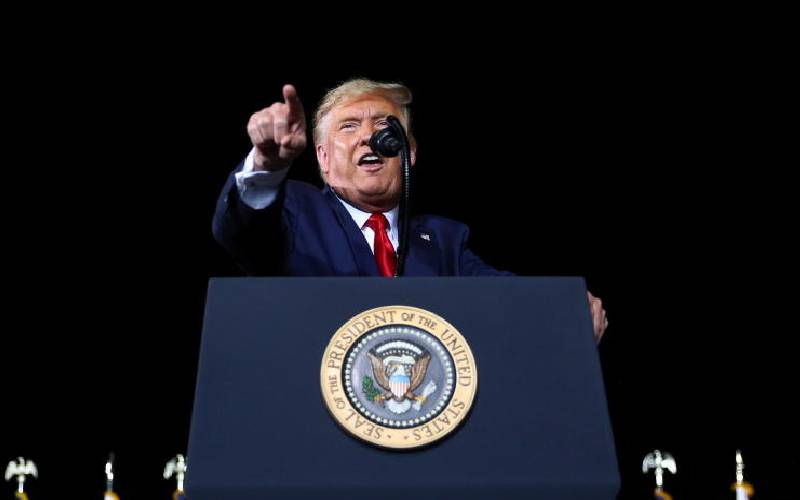×
The Standard e-Paper
Join Thousands Daily

US President Donald Trump holds a campaign rally at Pensacola International Airport in Pensacola, Florida, US, October 23, 2020. [Reuters]
No US presidential election in the last 60 years has evoked the extreme uncertainty and anxiety about its outcome as the one already underway and which concludes on Tuesday.